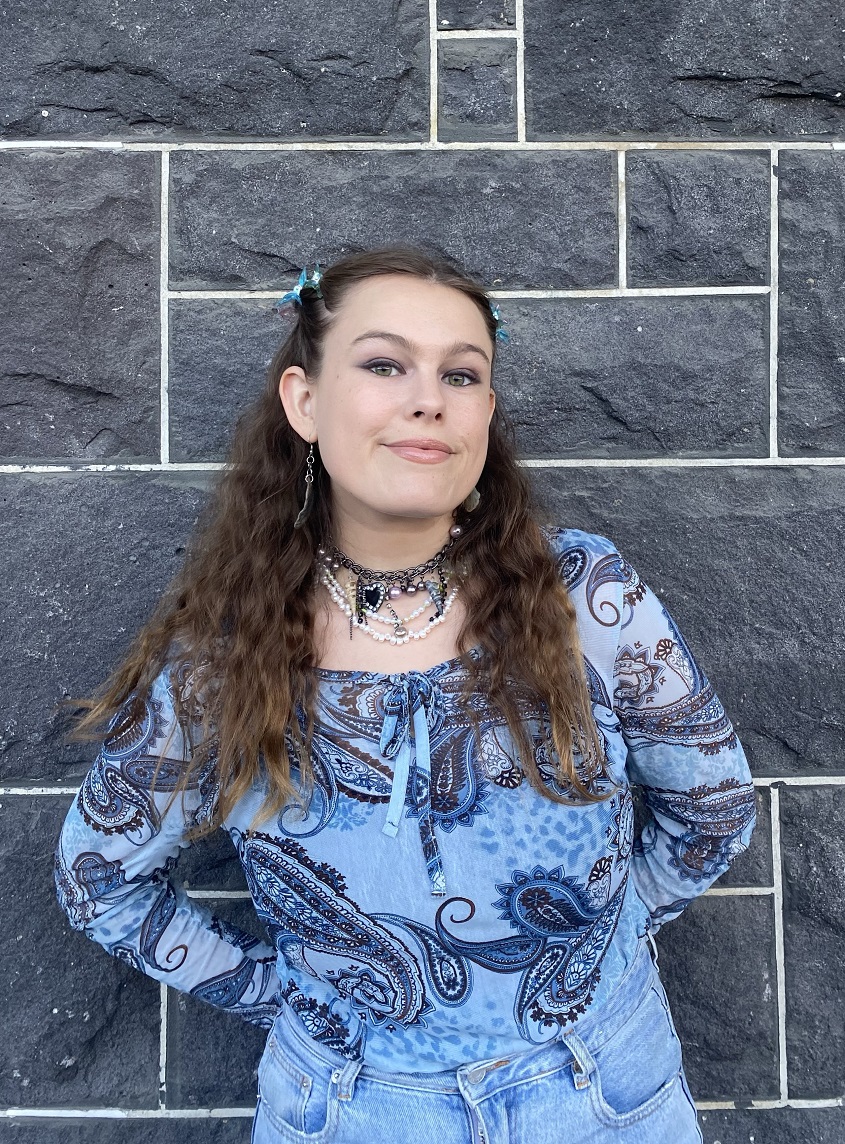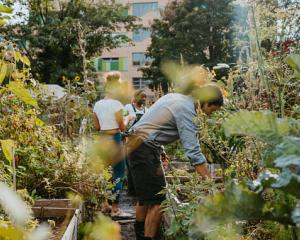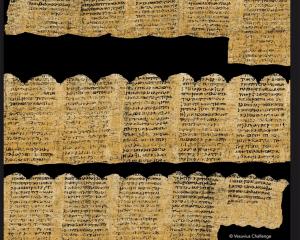
Jessica Hinerangi was springboarded into Mahuru Māori this year by literary festival Word, which played out in Christchurch in the final week of August and into the first rays of spring this month.
Mahuru Māori is the challenge laid down every year in September (Mahuru, the fourth lunar month of the Māori year, is approximately equivalent to September) to speak as much te reo Māori as possible. Te Wiki o te Reo Māori falls in the middle of it.
At Word, Hinerangi joined three other Māori writers on a panel to talk about their multidisciplinary approach to writing and other artforms.
It is common for Māori to spread their creativity across various disciplines, Hinerangi (Ngāti Ruanui, Ngāruahine, Ngāpuhi, Pākehā) says.
"So, I’m a poet, but I’m an illustrator as well and I’m a digital illustrator, but I like to paint with whenua as well."
She also has an interest in taonga puoro, traditional musical instruments.
And there’s an echo of that approach to life in Hinerangi’s strategy for Mahuru Māori. She’s enrolled in a te reo Māori language programme this year, but will be incorporating some extra skills for this month.
"I will be using it to learn some more waiata, actually, with more a-ringa, more actions.
"Because we’ve been learning more waiata in my class and I find that the easiest way for me to learn is through waiata. So, I am going to make a little list and slowly go through it and chip away at it, hopefully with some friends. That’ll be the extra special thing that I do alongside my classes, trying to practise it on the regular."
For Hinerangi, a broad-based approach to creativity began early.
"Oh my gosh, yeah, when I was a child, I was so confident I was going to be a writer and an illustrator," she says.
There would be a million books, illustrated on every page.
"I was just always committed to being more than the one thing, I didn’t just want to be a writer, I wanted to create imagery."
Over the years, the potential of that approach has only come into clearer focus.
Today, Hinerangi sells her work online as Māori Mermaid.
The words and images she creates feed into each other in a cyclical way, she says.
"The illustrations will feed the poems and the poems will feed illustrations. And when I paint with whenua, sometimes I’ll paint poems out and so it is all this great loop."
It can extend to the sounds of taonga puoro too.
"I’ll incorporate puoro into my poems, not necessarily through playing it physically, but trying to write it out."
Hinerangi’s use of whenua currently involves kōkōwai, a red ochre, and uku, a white clay, from Te Tai Tokerau.
"It’s such a sacred practice. So I am trying to be intentional with the imagery that comes out. And at the moment, a lot of it is writing whakataukī and writing poetry."
Such connections were also an element in Hinerangi’s master’s degree at Ōtākou Whakaihu Waka, the University of Otago, which focused on Māori ekphrastic poetry.
"So that had a focus on Māori writers writing about artworks, taonga, objects, and how Māori poets write ekphrastic poetry in such a way that sees the taonga and the piece as a living thing, as with its own mauri," Hinerangi says.
The thesis looked at the how and the why of it, and what that lends to the artwork.
As poetry editor for The Weekend Mix’s Weekend Poem, Hinerangi says she’d love to see te reo Māori being used.
"I’m really hoping that we get some te reo poems submitted."
It need not be poems entirely in te reo, she says.
"Any te reo is good, no matter how small, you know. Ahakoa he iti, he pounamu. I think that no matter how small, it is a taonga and it is to be shared and to be used. Whether it’s one kupu or a thousand kupu, I think it’s important."
Hinerangi says she relates to that journey, as someone who is not yet fluent in te reo.
"A lot of my poems will include te reo Māori and Pākehā."
We all have to start somewhere, she says.
"Te reo Māori and Māoritanga only enriches every part, every aspect of your life, your encounters and your relationships with whānau and friends. It enriches your whakapapa, it enriches your mahi and what you share and what you do for yourself and what you do for others."
As far as starting into the role of Weekend Mix poetry editor goes, Hinerangi says she is just reading through the poems that have been submitted, trying to see the beauty in them.
"We’re in a very tumultuous time right now in Aotearoa and in the world. So I am looking for political poetry, and I am looking for poems that reflect the times right now, poems that will also hopefully give a little bit of hope to someone’s day who’s reading."
She is excited to read what people in our community have to say creatively, she says, excited to be a part of sharing their creative voice.
"And I’m looking for people who are just giving it a go, as well. I’m not necessarily looking for really polished poems that are perfect and could win awards.
"I’m looking for people who have wanted to try being a poet, but haven’t necessarily felt confident enough. And my whakaaro has always been to try to encourage people to find the creative in themselves and their own creative voice."
Hinerangi also had a reminder of that process at the Word festival in Christchurch, where she was on a "Bad Diaries Salon" panel, at which they shared excerpts of early writing and diary entries never intended for public consumption.
"And I’d found a diary from when I was 13 going on 14," she says.
"So, it was pretty mortifying stuff."
But the important thing was that she was writing as a young person and was eventually courageous enough to share it.
"Because, you know, no matter how embarrassed you might feel or worried you might be about it not being good enough, someone’s going to resonate with it or someone’s going to understand what you’re trying to say."
"Ko te reo kia rere" talks of letting the language fly, letting its use be frequent and eloquent.













